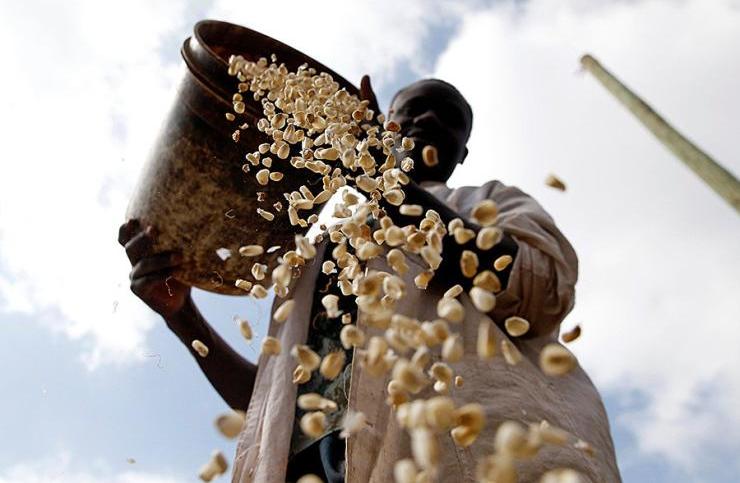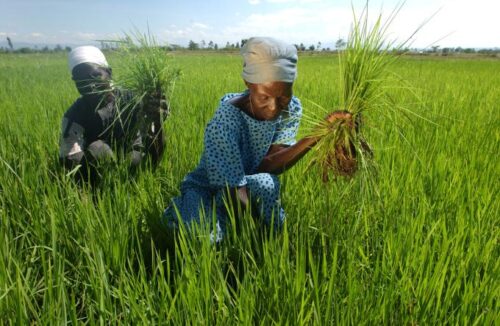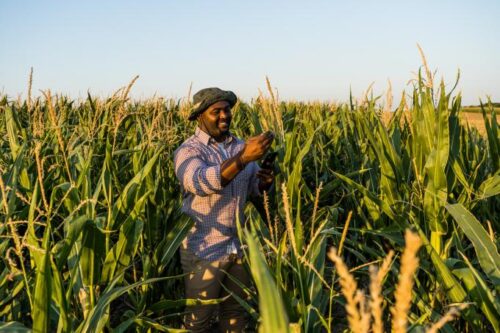The Seeds of Discord.

It is called participatory genetic improvement of seeds, takes place in the fields, involves farmers, and stems from the reduction of biodiversity. It prevents seeds from being controlled by a few.
The FAO defines food sovereignty as the ‘right of peoples, communities and countries to determine their own agricultural, labour, fisheries, food and land policies which are ecologically, socially, economically and culturally appropriate to their unique reality. Everyone has the right to safe, nutritious, and culturally appropriate food, the resources to produce it, and the ability to support themselves and their societies’.
On the other hand, there can be no food sovereignty without seed sovereignty because the cycle of many plants that provide us with food begins with the seed at the time of sowing and ends with the seed at the time of harvest.Seed control, therefore, involves the control of food and our health. Today, over 60% of the world seed market is controlled by three large corporations (Syngenta/ChemChina, Monsanto/Bayer and DuPont/DowChemical) which also hold a similar percentage of the pesticide market (insecticides, fungicides, and herbicides).

No food sovereignty without seed sovereignty. File © FAO/Ami Vitale
With seeds and pesticides in the hands of a few, the autonomy of farmers regarding what to grow is reduced as is, consequently, the autonomy of people as to what to eat and therefore food sovereignty. The consequence of the seed oligopoly is the uniformity of the agricultural panorama that characterizes agriculture in the countries of the northern hemisphere with three species – wheat, rice, and corn – which supply over 60% of the proteins of vegetable origin.
Not just a few species, but a few varieties within species and plants all the same within varieties. Through international organizations, this uniformity is also introduced in the countries of the southern hemisphere including Africa, not only in the form of hybrids and GMOs, which are nothing more than the most advanced expression of uniformity pursued almost exclusively by modern genetic improvement, but also of food aid in the event of famine.

Witbank, South Africa. Commercial Maize Farming. The introduction of hybrids and GMOs is frequently motivated by the need to increase production to fight hunger. 123rf.
The introduction of hybrids and GMOs is frequently motivated by the need to increase production to fight hunger; however, the resulting uniformity is exactly the opposite of the message that comes to us from ecology, namely that greater diversity corresponds to greater productivity (therefore feeding people) and greater resilience (to better tolerate extreme events).
One model of genetic improvement that avoids the reduction of cultivated biodiversity is a participatory genetic improvement. This model differs from conventional breeding because it is decentralized, i.e., the selection takes place in the fields and not in the experimental stations, and because the farmers participate in the whole process starting from the identification of the targets.
In Africa, for example
In Africa, this model has been used in about thirty countries in the improvement of barley, durum wheat, teff, beans, banana, cassava, lentils, broad beans, chickpeas, peas, pearl millet, African millet, and sorghum. In Eritrea, new drought- and disease-resistant varieties of barley, wheat, lentils, broad beans, and chickpeas were identified within a four-year participatory project. Pearl millet production in West Africa has been increased by applying participatory breeding to local varieties with the result that farmers have easier access to seeds and the ability to share the information learned through the research process.

Farmer is standing in his growing corn field. He is satisfied because of good progress of plants. in bringing control of the seeds back into the hands of the farmers. 123rf
In Mali, the farmers engaged in a participatory program on sorghum, a species of fundamental importance for nutrition, have regained control of the hybrids, benefiting not only from their higher productivity but also from the sale of the seed through small local shops, thus freeing themselves completely from external sources. Despite its success among farmers and its scientific basis, participatory breeding has rarely been institutionalised. The reason is to be found in the greater power of control over the seeds that this model gives back to the farmers. From mere users, they have returned to being protagonists of biodiversity in the field and have regained their lost skills. Mixtures and evolutionary populations, i.e., varieties made up of different plants, represent a further step forward in bringing control of the seeds back into the hands of the farmers in a more autonomous way than participatory genetic improvement which implies the presence of an institution. Due to their structure and as a result of natural selection and the crossings that occur naturally within them, evolutionary mixtures and populations evolve, i.e., the seed that is harvested is always different from the one that is sown and therefore they are not patentable. Their constantly evolving diversity represents a dynamic response to climate change, protects crops from parasites, but above all allows the farmer to regain control of the seed: because there is no better seed than the one that literally evolves under his feet. (Open Photo: Fao)
Salvatore Ceccarelli



